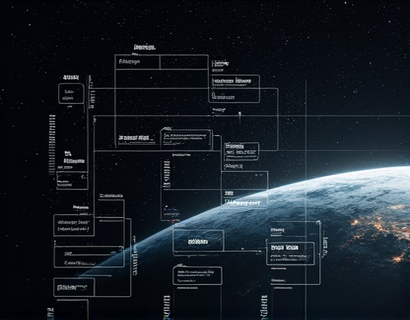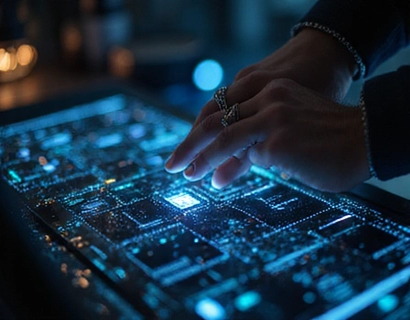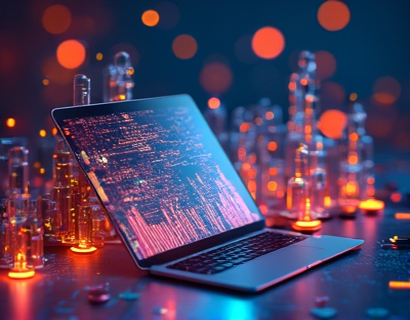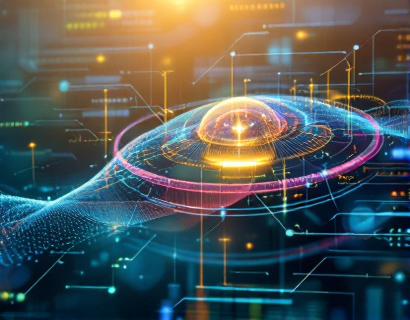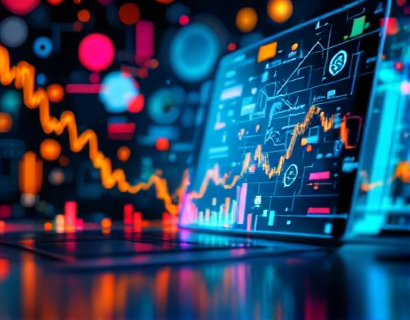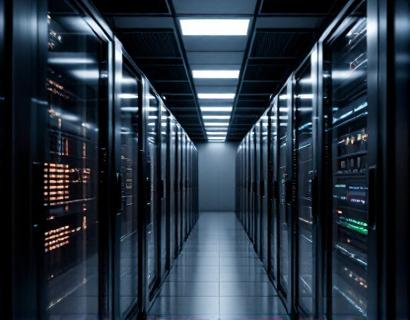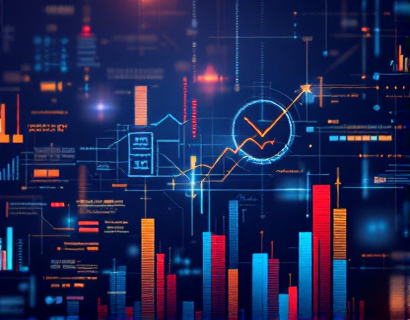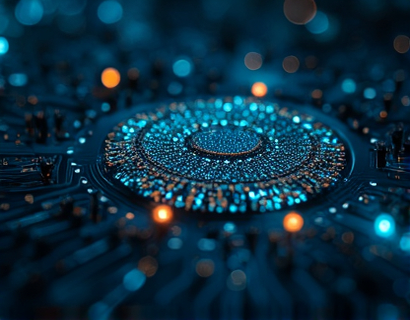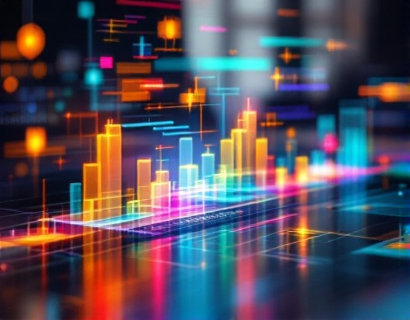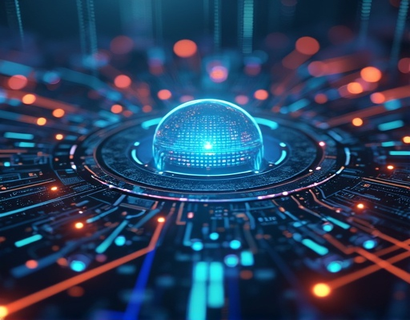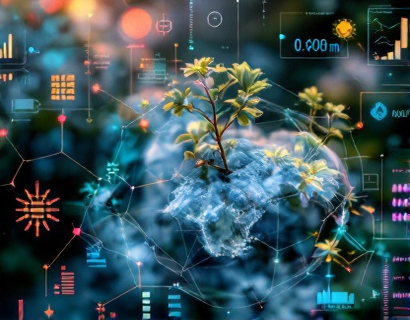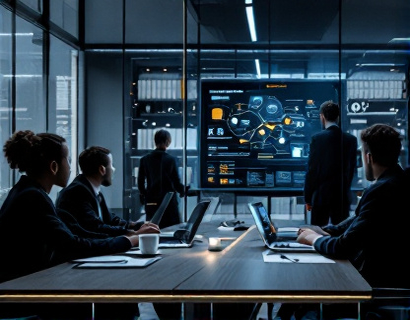Unlocking Digital Transformation: Harnessing AI and Crypto for Enhanced User Experiences
The digital landscape is undergoing a profound transformation, driven by the convergent powers of Artificial Intelligence (AI) and cryptocurrency. This synergy is not just a technological curiosity but a pivotal shift that is redefining how users interact with digital services and applications. For tech-savvy users and innovators, understanding this intersection is crucial for navigating the future of connected services. This article delves into the innovative solutions emerging at the crossroads of AI and cryptocurrency, offering valuable insights into the enhanced user experiences these technologies are crafting.
The Intersection of AI and Cryptocurrency
The fusion of AI and cryptocurrency is creating a new paradigm in digital technology. AI, with its capabilities in data analysis, pattern recognition, and predictive modeling, is enhancing the functionality and security of blockchain-based systems. Conversely, the decentralized and secure nature of cryptocurrency provides a robust framework for AI applications to operate in a trustless environment. This synergy is giving rise to applications that are more intelligent, secure, and user-friendly.
Enhanced Security through AI and Crypto
One of the most significant benefits of combining AI with cryptocurrency is the enhancement of security measures. Traditional security protocols can be bypassed or compromised, but the integration of AI into blockchain technology introduces a new level of protection. AI algorithms can monitor transactions in real-time, detecting anomalies and potential fraud with high accuracy. Smart contracts, powered by AI, can automatically enforce and execute contractual obligations based on predefined conditions, reducing the risk of human error and malicious intent.
Moreover, AI-driven cryptography is evolving to create more secure encryption methods. Techniques like homomorphic encryption, enabled by AI, allow data to be processed in its encrypted form without needing to decrypt it first. This ensures that sensitive information remains secure even when being computed, a critical feature for applications handling personal or financial data.
Personalized User Experiences
AI's strength lies in its ability to personalize experiences based on user behavior and preferences. In the context of cryptocurrency and digital services, this means creating tailored interfaces and functionalities that enhance user engagement and satisfaction. For instance, AI can analyze a user's transaction history and preferences to offer customized investment recommendations or suggest relevant blockchain-based services. This level of personalization not only improves user experience but also increases the adoption and utility of these technologies.
Furthermore, AI-powered chatbots and virtual assistants are becoming integral to crypto platforms, providing users with instant support and guidance. These AI-driven interfaces can handle a wide range of queries, from explaining complex blockchain concepts to assisting with wallet management and transaction processes. The result is a more intuitive and user-friendly experience that lowers the barrier to entry for new users.
Decentralized Applications and AI
Decentralized Applications (dApps) are at the forefront of the AI and cryptocurrency revolution. These applications leverage blockchain technology to operate without central authorities, offering greater transparency, security, and user control. AI enhances dApps by providing intelligent automation and advanced data analytics. For example, AI can optimize the performance of dApps by predicting user behavior and adjusting resources accordingly, ensuring smooth and efficient operations.
In the realm of decentralized finance (DeFi), AI is revolutionizing how financial services are delivered. AI algorithms can analyze market trends, assess risks, and automate trading strategies, making DeFi more accessible and efficient. Smart contracts enhanced by AI can execute complex financial operations with precision, reducing the need for intermediaries and lowering transaction costs. This not only democratizes financial services but also opens up new opportunities for innovation in the financial sector.
Supply Chain and Logistics
The supply chain and logistics industry is another area where AI and cryptocurrency are making significant impacts. AI-driven blockchain solutions can track products from manufacture to delivery, ensuring transparency and traceability. Each step in the supply chain is recorded on the blockchain, and AI can analyze this data to identify bottlenecks, optimize routes, and predict maintenance needs for logistics equipment. This level of visibility and efficiency reduces costs and enhances customer satisfaction by ensuring timely and reliable delivery.
Cryptocurrency plays a crucial role in this ecosystem by providing a seamless and secure method for transactions across the supply chain. Smart contracts can automate payments and ensure that all parties adhere to contractual agreements, reducing the risk of disputes and delays. The use of stablecoins, a type of cryptocurrency pegged to a stable asset, further stabilizes transactions and reduces volatility-related risks.
Healthcare and AI-Driven Blockchain
The healthcare sector is witnessing a transformative shift with the integration of AI and blockchain technology. Patient data management is a critical challenge in healthcare, and the combination of AI and cryptocurrency offers a robust solution. AI can analyze vast amounts of medical data to identify patterns, predict disease outbreaks, and personalize treatment plans. Blockchain ensures that this data is stored securely and privately, with patients maintaining control over their information.
AI-powered blockchain platforms can facilitate secure sharing of medical records among healthcare providers, ensuring that patients receive coordinated and high-quality care. Smart contracts can automate insurance claims and reimbursements based on predefined criteria, streamlining the administrative process and reducing fraud. The transparency and immutability of blockchain records also enhance trust and accountability in healthcare operations.
Gaming and Virtual Worlds
The gaming industry is another domain where AI and cryptocurrency are converging to create immersive and rewarding experiences. AI enhances game dynamics by creating more realistic and adaptive environments, while cryptocurrency introduces new economic models and incentives. In blockchain-based games, players can own digital assets represented by unique tokens, which can be traded or used within the game ecosystem. AI can manage these assets, ensuring fair play and preventing cheating.
DeFi principles applied to gaming allow players to earn and invest their in-game tokens in real-world assets or other games, expanding the potential for value creation. AI-driven NFTs (Non-Fungible Tokens) can offer unique and valuable digital items, further enriching the gaming experience. The combination of AI and cryptocurrency in gaming not only enhances user engagement but also opens up new revenue streams for developers and players alike.
Challenges and Considerations
While the potential of AI and cryptocurrency is vast, there are challenges that need to be addressed to fully realize their synergistic benefits. Regulatory uncertainty remains a significant hurdle, as governments worldwide are still grappling with how to regulate these emerging technologies. Compliance with existing laws and the development of new regulatory frameworks are essential to foster innovation while protecting users.
Technical challenges, such as scalability and interoperability, also need to be overcome. Blockchain networks must be able to handle high transaction volumes efficiently, and different blockchain platforms need to work seamlessly together to support widespread adoption. Continuous research and development are necessary to address these technical barriers.
Future Outlook
The future of AI and cryptocurrency integration holds immense promise. As technology advances, we can expect more sophisticated AI algorithms that further enhance the security, efficiency, and user experience of blockchain-based systems. The rise of edge computing, combined with AI and cryptocurrency, will enable more decentralized and responsive applications, reducing latency and improving performance.
Moreover, the convergence of AI, cryptocurrency, and other emerging technologies like the Internet of Things (IoT) will create a more interconnected and intelligent world. Smart homes, cities, and industries will benefit from AI-driven blockchain solutions that ensure security, efficiency, and sustainability. The potential for innovation is vast, and those who embrace this synergy will be at the forefront of the next digital revolution.



